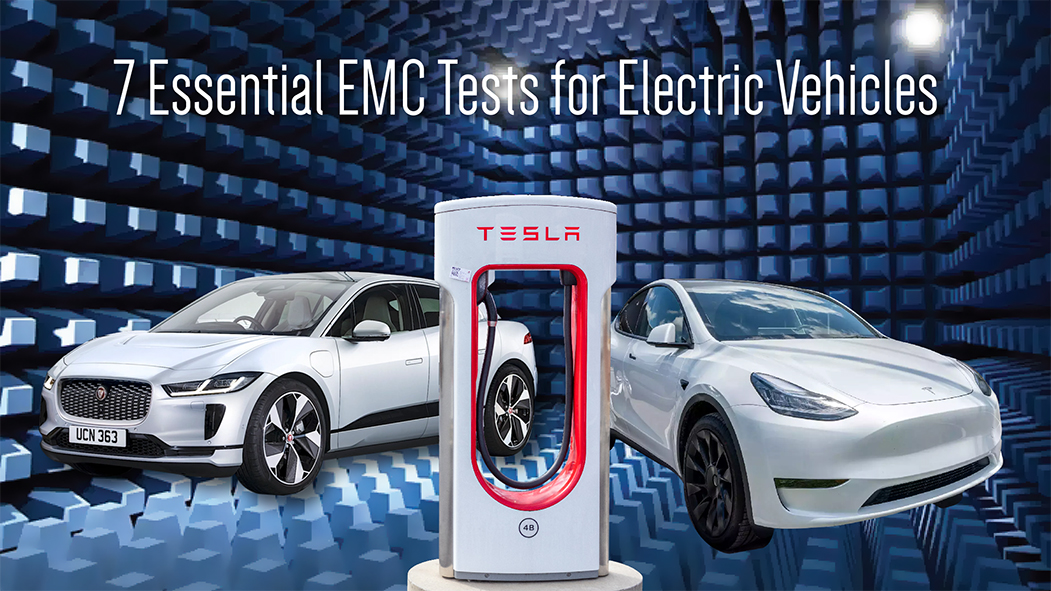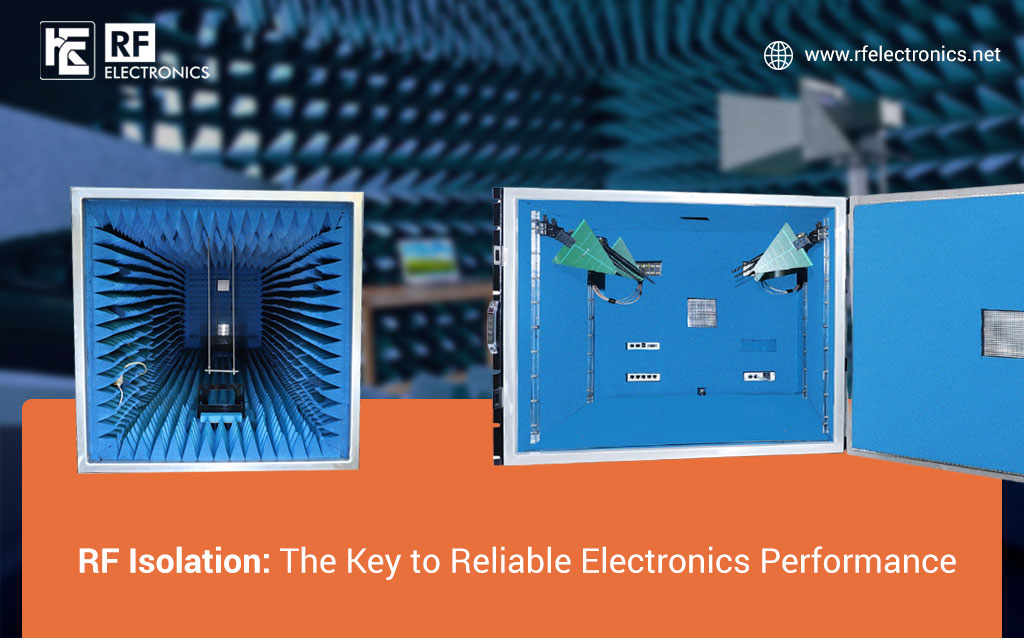Sep 04, 2024

As electric vehicles (EVs) become more popular, it's crucial to ensure they are reliable and safe. A key part of this is making sure they work well with other electronic devices, which is where electromagnetic compatibility (EMC) comes in. EMC testing checks that EVs don't interfere with other electronics and can resist external electromagnetic interference (EMI). Let us look at seven important EMC tests for electric vehicles. These tests help manufacturers create high-quality, compliant products.
Radiated Emissions
Radiated emissions testing measures the electromagnetic energy emitted by the vehicle into its surroundings. This test ensures that the emissions stay within acceptable limits to prevent interference with other electronic devices, like radios, GPS systems, and mobile phones. Testing is typically conducted in an anechoic chamber, a room specially designed to absorb reflections of electromagnetic waves, isolating the vehicle from external noise and ensuring accurate measurements. Maintaining low radiated emissions is crucial for minimizing potential disruptions to communication and navigation systems both inside and outside the vehicle.
Radiated Immunity
Radiated immunity testing evaluates how well the vehicle can withstand electromagnetic interference (EMI) from external sources. It simulates real-world scenarios where the vehicle might encounter high levels of EMI, such as near broadcast towers or powerful transmitters. Ensuring strong radiated immunity is essential for the reliable operation of critical vehicle systems, including navigation, braking, and communication. Vehicles that pass this test are better equipped to handle electromagnetic disturbances without affecting their performance or safety.
Conducted Emissions
Conducted emissions testing focuses on the electromagnetic energy conducted through the vehicle's power lines and wiring harnesses. This test ensures that emissions remain within permissible limits, preventing interference with the vehicle's own systems and external electrical infrastructure. Effective conducted emissions testing helps preserve the integrity of the vehicle's electrical components and ensures compliance with regulatory standards, ensuring safe operation and reducing the risk of interference with other vehicles or electrical devices.
Harmonics Emissions
Harmonics emissions testing evaluates the distortion of electrical current within the vehicle's power system. Harmonic distortion can lead to excessive heating in electrical components and reduce the efficiency of the power system. By identifying and mitigating harmonic emissions, manufacturers can enhance the reliability and efficiency of electric vehicles. Minimizing harmonic distortions contributes to longer-lasting components and improved overall performance, ensuring that the vehicle operates efficiently and reliably over its lifespan.
Flicker Emissions
Flicker emissions testing assesses variations in voltage caused by the vehicle's electrical loads. Rapid changes in voltage can result in flickering lights and disruptions in the power supply, affecting both the vehicle and connected infrastructure. This test ensures that electric vehicles maintain a stable and consistent electrical environment, minimizing the potential for power quality issues. By reducing flicker emissions, manufacturers enhance the overall user experience and ensure reliable operation of electrical systems within and around the vehicle.
EFT/Burst Immunity
Electrical Fast Transient (EFT) or burst immunity testing evaluates the vehicle's ability to withstand sudden, high-frequency bursts of electrical energy. These bursts can occur due to switching operations, relay contacts, or other abrupt changes in the vehicle's electrical system. Ensuring strong EFT immunity is essential for protecting sensitive electronic components and maintaining reliable operation under real-world conditions. Vehicles that pass this test demonstrate robust resilience against transient disturbances, ensuring consistent performance and longevity of critical systems.
Surge Immunity
Surge immunity testing examines the vehicle's capacity to endure high-energy surges, such as those caused by lightning strikes or power line switching. These surges can pose a significant threat to electronic components and disrupt the vehicle's operation. By validating robust surge immunity, manufacturers safeguard critical systems and enhance the safety and reliability of electric vehicles in extreme conditions. Vehicles that withstand surge tests effectively are better equipped to handle unpredictable electrical events, ensuring uninterrupted operation and protecting both passengers and equipment.
About RF Electronics
RF Electronics is your one-stop shop for all RF-related needs, offering a comprehensive range of products and services to support your EMC testing requirements. From high-quality components and advanced test equipment to expert technical support and custom solutions, RF Electronics is dedicated to helping you achieve the highest standards of performance and compliance in your electric vehicle projects.
Ensuring the electromagnetic compatibility of electric vehicles is essential for their safe and reliable operation. By focusing on these seven essential EMC tests, manufacturers can deliver high-quality, compliant vehicles that perform well in real-world conditions. With the right tools and expertise, you can navigate the complexities of EMC testing and achieve success in the rapidly evolving electric vehicle market.
Previous Blog

Selecting the Right RF Shield Box for Your Needs
Learn MoreNext Blog

RF Isolation - The Key to Reliable Electronics Performance
Learn More